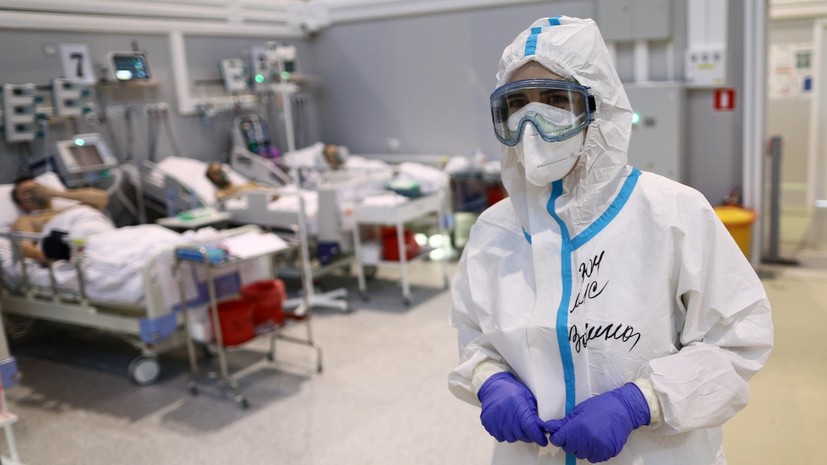In Russia, over the past day, 18,090 people were hospitalized with a diagnosis of coronavirus infection - 7.6% less than the day before (19,573).
The daily increase in the number of patients with COVID-19 across the country amounted to 180,622 (on February 16, an indicator of 179,284 was recorded).
Most new cases were detected in St. Petersburg (16,595), Moscow (9,705), Krasnoyarsk (7,617) and Perm regions (5,305), Voronezh (5,095), Novosibirsk (5,043) and Sverdlovsk regions (5,011).
In all other regions of the Russian Federation, the number of newly detected cases of coronavirus did not exceed 5 thousand.
Over the past day, 185,082 patients have fully recovered, 790 people have died.
The total number of coronavirus cases registered in Russia has reached 14,840,502.
The day before, Prime Minister Mikhail Mishustin urged Russians to take precautionary measures, since the epidemiological situation in the country is “quite difficult.”
“In the Russian Federation, the rise in the incidence continues for the fifth week, the epidemiological situation remains quite tense,” added Anna Popova, head of Rospotrebnadzor.
According to her, the omicron coronavirus strain accounts for 72.5% of all detected cases.
At the same time, Minister of Health Mikhail Murashko pointed out that in patients with the pathogen of the Omicron strain who have chronic diseases, the disease can proceed in a severe form, as in the Delta variant: “Therefore, vaccination and revaccination are fundamentally important in order to protect oneself from severe course of the disease.
Medicines for COVID-19
On February 17, the Moscow authorities published the results of an additional study of the immunogenicity of Sputnik V, a year after the introduction of the first component.
“The first results of the analysis of the level of antibodies show the presence of a sufficiently high level of specific IgG antibodies to the S-protein of the coronavirus in all vaccinated volunteers after vaccination at the time of the additional study.
So, today there are results for 1323 participants out of three thousand - this is a sample of 44% of participants.
Of these, 80% have an antibody level above 200 BAU (a unit of measurement of binding antibodies approved by WHO. -
RT
), which is considered a fairly high indicator, ”said Anastasia Rakova, Moscow Deputy Mayor for Social Development.
Meanwhile, the developer of Sputnik V, the Gamaleya Research Center for Epidemiology and Microbiology, may release a new vaccine against coronavirus into civilian circulation next fall.
We are talking about a preparation containing virus-like particles.
On the eve of the Ministry of Health approved the conduct of clinical trials I-II phases.
“The first or second phase of clinical trials should take 3-3.5 months, and then we will look at the effectiveness.
If everything goes well, I think that it will go into civilian circulation, into wide circulation by autumn, ”RIA Novosti quotes Alexander Gintsburg, director of the Gamaleya Center.
In addition, the head of the Laboratory of Mechanisms of Population Variability of Pathogenic Microorganisms of the Center.
N.F.
Gamalei of the Russian Ministry of Health Vladimir Gushchin, in an interview with RT, spoke about work on a drug based on monoclonal antibodies.
“The use of monoclonal antibodies is a way to passively immunize those people who do not have their own antibodies.
For example, in the case when a person has not been vaccinated and has never encountered a coronavirus before.
The introduction of a cocktail of monoclonal antibodies allows such a person to form a highly specific, highly effective virus-neutralizing response.
These are actually active substances that bind the virus and deprive it of the ability to infect the cell,” he said.
According to him, this development is designed to save people who are at risk for a whole list of aggravating diseases.
“If a person who is at risk of developing a severe course of the disease becomes ill with a coronavirus, antibodies are injected into him.
They block the virus, and the patient recovers very quickly - he does not develop an infectious process, ”Gushchin emphasized.
On February 16, Alexander Gintsburg announced that Gamaleya National Research Center for Epidemiology and Microbiology will soon receive permission from the Ministry of Health to conduct clinical trials of a drug against COVID-19 based on monoclonal antibodies.

